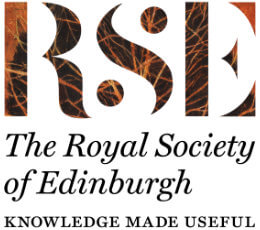How can singing be beneficial for individuals with additional learning support needs?
Singing has been developed as a music therapy for individuals with additional learning support needs (ASN), also referred to as intellectual disabilities, with organisations such as Nordoff Robbins fore fronting this movement in the UK. In a singing group context, research his illustrated that singing groups are beneficial for individuals with ASN through belonging, connectivity, and communicative capacities. For example, research by Hassan (2017) has explored the potential for singing to foster a sense of individual and collective identity where singing facilitates social connections which can lead to a sense of inclusion. This in turn can help to alleviate marginalisation which individuals with ASN may experience through stigma or exclusion. Singing also provides opportunities for communication, which transcend the challenges of verbal communication for those with physical and neurological disorders. Achieving goals in the singing session can lead to a sense of self-confidence, as is the case in many group singing settings.
Research by Ward and Parkes (2015) has also explored group singing in the context of individuals with ASN who are also living with Dementia. This research on Singing for the Brain ties in with our explainer page on Dementia Inclusive Singing. This evaluation within a day centre context, indicated that singing elevated the mood of individuals, facilitated social interactions, improved memory of participants, and facilitated communication.
Want to find a singing group that is ASN inclusive?
![]() If you would like to find a group that is inclusive of individuals with learning disabilities in your area, please visit see the Scotland’s Singing for Health Map. These groups are marked with a blue and white heart.
If you would like to find a group that is inclusive of individuals with learning disabilities in your area, please visit see the Scotland’s Singing for Health Map. These groups are marked with a blue and white heart.
What does the research say and how can I access it?
There are less studies on this particular topic than there are for some other health conditions. However, new research is currently emerging. You can find a few open access qualitative and quantitative studies here:
Hassan, NA (2017) ‘Re-voicing: Community choir participation as a medium for identity formation amongst people with learning disabilities’. International Journal of Community Music, 10(2). pp. 207-225. ISSN 1752- 6299
Moore, J., Phillips, J., Tallent, J. and Coren, E. (2020). Impacts of participating in a choir on health and wellbeing of adults with intellectual disabilities. Journal of Music, Health and Wellbeing.
There are also Restricted-access research papers where you are able to view the abstract and key information about the study or literature review:
Davidson, J.W. and Faulkner, R. (2010) Meeting in music: The role of singing to harmonise carer and cared for, Arts & Health, 2(2), 164-170, DOI: 10.1080/17533010903488608
Kennedy, L. and Brewer, G. (2016), Creative methodologies to enhance communication. British Journal of Learning Disabilities, 44: 35-42. https://doi.org/10.1111/bld.12107
Pavlicevic, M., O’Neil, N., Powell, H., Jones, O., & Sampathianaki, E. (2014). Making music, making friends: Long-term music therapy with young adults with severe learning disabilities. Journal of Intellectual Disabilities, 18(1), 5–19. https://doi.org/10.1177/1744629513511354
Ward, A. R., & Parkes, J. (2017). An evaluation of a Singing for the Brain pilot with people with a learning disability and memory problems or a dementia. Dementia, 16(3), 360–374. https://doi.org/10.1177/1471301215592539
Sophie Boyd



